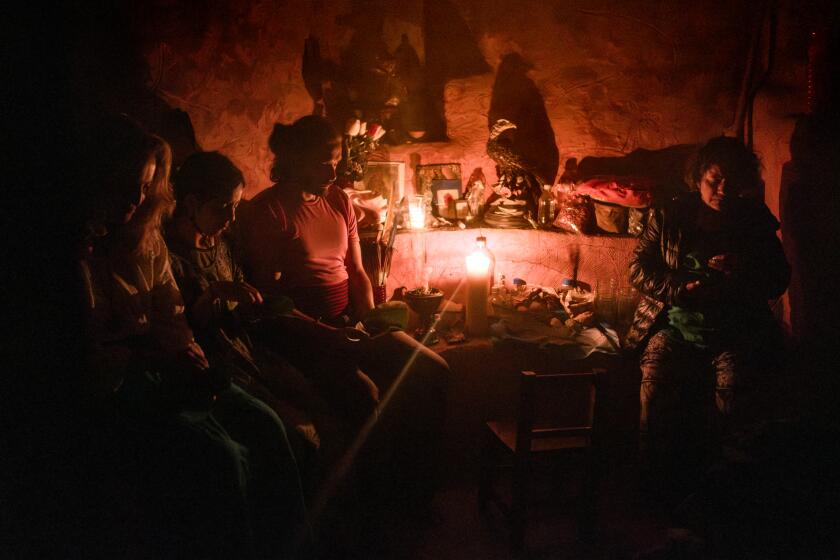U.S. Fears Another Haitian Exodus
U.S. officials warned Haitians on Tuesday not to flee to Florida because of the civil strife on their island, and made new preparations to intercept any who try to make the perilous ocean journey.
As U.S. diplomats intensified their efforts to halt the spreading violence, State Department spokesman Richard Boucher echoed long-standing U.S. concerns about large waves of immigrants from the Caribbean.
“We don’t want to open up our gates or invite people. That’s not the solution to Haiti’s problems,” Boucher said.
Tension created by such immigration frequently has taken on political overtones in Florida, with voters demanding action to stem the influxes and holding elected officials responsible. The issue could be especially sensitive this year because of President Bush’s desire to win Florida and its crucial electoral votes.
A State Department official who insisted on anonymity told reporters that U.S. authorities were watching carefully for signs of an exodus, and had alerted the Coast Guard to take precautions. Two Coast Guard cutters are on patrol between Florida and Haiti.
The official said U.S. authorities had been updating their contingency plan for handling an exodus, and “we obviously have been monitoring the situation very closely.” U.S. officials have not seen any increase in refugees, even though the strife between supporters of Haitian President Jean-Bertrand Aristide and opposition groups has claimed dozens of lives, the official said.
The United States intercepts between 2,500 and 3,500 emigrants from Haiti each year, according to the official. Most of the emigrants say they are fleeing the poverty of their country, the poorest in the Western Hemisphere.
Previous civil strife in Haiti has set off waves of emigration. In 1994, during unrest that led to a U.S. invasion, an exodus resulted and the Coast Guard intercepted 24,000 Haitians.
In 1992, emigration from Haiti became an election issue because then-President George H.W. Bush was detaining thousands of refugees at the U.S. naval base at Guantanamo Bay, Cuba. Bill Clinton, then the Democratic presidential nominee, criticized the policy as inhumane.
Michael McCarthy, a specialist on Haiti at the Council on Foreign Relations in Washington, said the fighting in Haiti “could bring the kind of chaos that could cause” an exodus.
At the same time, he said many would-be emigrants would be deterred by the U.S. government’s 2-year-old policy of jailing Haitians caught trying to enter the country illegally until their trial. The policy was adopted in December 2001 because of fears in the aftermath of the Sept. 11 attacks that Haitian asylum seekers might include terrorists.
Haitians “do know about this policy.... It keeps them from coming,” McCarthy said.
McCarthy noted that Boucher, in his comments, seemed to signal little U.S. support for Aristide. U.S. officials have been increasingly frustrated with Aristide because he has resisted international pressure to accommodate his opponents.
Asked whether the U.S. government still supported Aristide’s presidency, Boucher said, “We recognize that reaching a political settlement will require some fairly thorough changes in the way Haiti is governed.”
More to Read
Sign up for Essential California
The most important California stories and recommendations in your inbox every morning.
You may occasionally receive promotional content from the Los Angeles Times.











